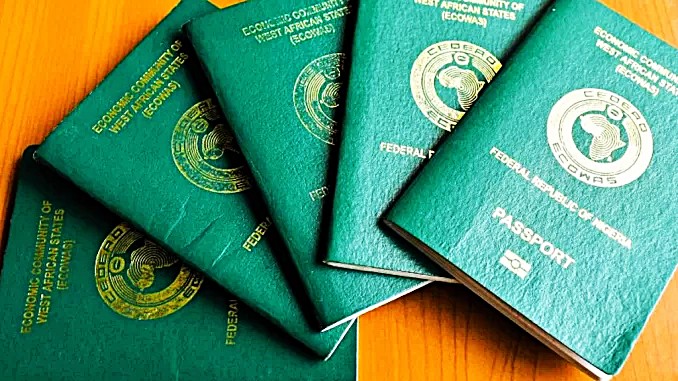Niger Republic is now stopping Nigerians with ECOWAS passports from entering its country unless they have an international passport.
The Republic of Niger has started enforcing strict travel rules for Nigerians using the ECOWAS passport.
Many travelers have been denied entry at border crossings, such as Illela in Nigeria and Konni in Niger. This new rule comes after Niger, Mali, and Burkina Faso left the Economic Community of West African States (ECOWAS).
Niger border officials no longer accept the ECOWAS passport as a valid travel document. Alhaji Mansur Abdullah, a trader who travels often between Nigeria and Niger, confirmed that Nigerians are facing harassment at the border.
“There is a move to stop the use of the ECOWAS passport. Our people are being sent back home. We heard that Niger has introduced a new passport that travelers must now use,” he said.
Some travelers have also reported being turned away for not having this new Nigerien passport.
Apart from the new travel restrictions, some security officials in Niger have been accused of taking bribes.
A commercial driver, Abubakar Isa, claimed that travelers without the required passport are forced to pay between 5,000 and 10,000 CFA before being allowed to enter.
“If you don’t have their new passport, they take you to their office and pressure you to pay before letting you in,” he said.
Despite the travel restrictions, traders and transporters say that business activities at the border have not stopped. Alhaji Nuhu Abubakar, a trader in Illela, confirmed that the border remains open for now.
However, there are rumors that Niger’s military government may soon ban motorcycle movement between the two countries.
Joel Ahofodji, Head of Communication at the ECOWAS Commission, said the regional body was not aware of Niger’s decision to stop ECOWAS passport holders from entering.
The situation has left many Nigerians worried, especially traders and those who frequently travel between the two countries. If more restrictions are imposed, it could seriously affect cross-border trade and daily movement.







